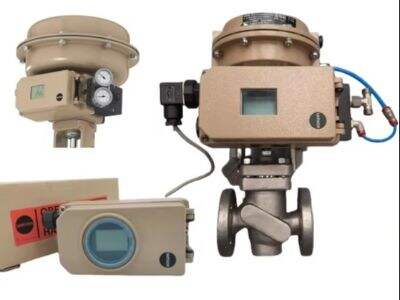Gali būti, kad jūsų valdymo kranai veikia blogai dėl su jais susijusių problemų. Tai gali būti dėl daugelio priežasčių. Kartais jie gali tapti lipo arba visai neveikti. Kai turite problemą su savo valdymo bop valve , nesijaudinkite! Tačiau ši problema nėra sudėtinga ištaisyti. Šis vadovas padės jums atrasti problemas ir lengvai ištaisyti šias paprastas valdymo kranų trūkumus.
Patikrinkite jėgą
Įsitikinkite, kad pirmiausia įjungiate vamzdyną. Tai yra labai svarbus žingsnis, nes vamzdynas negali veikti be energijos. Patikrinkite, ar vamzdynas atidarytas ir įjungtas. Tai vienas iš keletro scenarijų, kuriuos galvoju, kai vienas įrenginys gali neveikti, pvz., jėgų perjungiklis gali būti neįjungtas arba nepripjautas visiškai. Jei jis vis dar neveikia, patikrinkite prievadas. Ieškokite bet kokių neatitikmenų ar pažeidimų. Vamzdynas gali neveikti dėl išsisklaidęsios laidos. Jei yra laidoje problemų, jas pataisykite ir pabandykite ciklizuoti vamzdyną dar kartą.
Vamzdyno valymas
Jeigu jėga tvarkinga, o vamzdynas vis dar neveikia, vamzdynas gali būti užblokuotas. Tai reiškia, kad skysčio ar dujų srautas per vamzdyną buvo sustabdytas, todėl vamzdynas negali tinkamai veikti. Galima reikalauti vamzdyno valymo, kad išspręstumėte šią problemą. Jei galite gauti tam tikrą valymo tirpalą ar tiesiog vandens, išplaukite bop valve pirmiausia. Tai gali padėti išmesti bet kokių smūglių ar šlamo, kurie gali būti užstrigę viduje. Jei tai nepalengino, turėsite išmontuoti vamzdyną ir linksmai išvalyti uždarymą. Jį reikia išsiskaidyti tinkamu būdu, nes negalite prarasti jokio dalia, nes turite galvojti, kad vėliau jį reikės susieti atgal.
Ištaisyti nutekėjimus
Smūvis yra dar vienas problemos aspektas, kuris gali sukilti su valdymo vamzdžiais. Pajamos ar dujos, skradančios iš vamzdyno, rodo, kad yra sigelio problema. Sigelius yra labai svarbus ir sustabdo pajamas ar dujas išvysti iš vamzdyno. Jei smūviai yra problema, galite pabandyti pakeisti komponentą. Jo pakeitimas gali būti viskas, ką reikia, jei sigelius yra nušluostas arba sunaudotas. Jei sigelius yra tik mažai pažeistas, jį galima pataisyti. Patikrinkite sigelį ir pataisykite viską, ką rastote.
Lėtas atsakymas
Taip pat yra situacijos, kai bandote atidaryti ar uždaryti vamzdyną, o jis reaguoja lėtai, lyg būtų „Kardashian“-stilo lėtas judesys. Aktuatoriaus arba valdymo sistemos problemas gali sukelti lėta reakcija. Vamzdinio aktuatorius esanti dalis, kurios parengta vamzdiniui atidaryti ir uždaryti. Jei jis veikia netinkamai, vamzdynas gali nebegalėti atidaryti ar uždaryti optimalioje trukmėje. Šiuo atveju galite pabandyti ištaisyti aktuatorių. Jei jie nedarbo, reikia pakeisti visą aktuatorių.
Tada, jei valdymo sistema veikia blogai, vamzdynas gali visiškai neveikti. Reikia patikrinti valdymo sistemos funkciją. Pabandykite ją persetauti ir pamatykite, ar tai padeda išspręsti problemą. Jei po persetaujimo problema liko, tada, kad gautumėte gerai veikiantį vamzdyną, gali reikėti pakeisti visą valdymo sistemą.
Greitos popieriaus patarimai
Kartais susiduriame su situacijomis, kai reikia išspręsti reguliavimo vamzdyno problemą per sparčiai, nes gali nebūti laiko atlikti išsamių diagnostikos. Tai gali padėti, kai reikia patarimų ir triukų, kad pataisyti paprastus reguliavimo vamzdyno nusivylimus:
Jei vamzdynas vis dar neatsarginuoja ar nežūri lengvai, galite apsvarstyti aliejus ar angą naudoti, kas turėtų leisti jį judėti ramiau. Tai gali padėti sumažinti trintį ir padaryti, kad vamzdynas judėtų laisvesniu būdu.
Jei iš vamzdyno girdima garsas, galbūt vamzdyno ar aktyvatoriaus boltai ar šraubai yra išlankę. Tokiu atveju jie turėtų būti įtvirtinti kaip reikia. Išlankę dalys gali skambėti ir nuostoliauti našumas.
Jei pastebite, kad vamzdynas smarkia, įtvirkinkite jungtis. Jei sigelis per daug sugedęs, galite pakeisti ir sigelį, kad sustabdytumėte smarką.
Lipnios vamzdynai
Reguliavimo kranai kartais tampa lipojančiais. Todėl kranas ilgai atveriasi ar užveriasi, arba jis užsidingo viename pozicijoje ir nekenčia judėti. Ši problema dažniausiai kilus iš dūmų ar šlamo, kuris susiranda ant krano. Lipojančias values – Pabandyk vandens/valymo sprendimo. Įsitikinkite, kad visi yra švari ir nėra dūmų, kurie gali sukelti krano lipimą.
Kranai taip pat gali turėti trūkumų dėl krano stiebo, pakavimo ar aktyvatoriaus. Jei pastebite bet kokius šiuos problemų, juos reikia pataisyti. Jei kranas neatrodo veikiančio kaip turėtų, atlikite būtinus pataisymus ar pakeiskite veikiančias dalis.
Gaunant pagalbą
Bet, jei nė vienas iš šių patarimų nepasiseks, ir jūsų reguliacinio krano dar yra problemų, geriau pasikonsultuoti su ekspertais. Xiangjing yra patikima reguliacinių kranaų įmonė, kuri gali suteikti praktinį patarimą. Jų technikai yra ne tik linkę, bet taip pat sertifikuoti ir profesionalūs technikai, kurie gali atlikti bet kokios reguliacinės diagnostiką. bop valve ir jų pataisymas, greitai ir efektyviai. Jie gali nustatyti, kas negerai, ir pasiūlyti efektyviausią sprendimą.
Galutiniai mintys apie priežastis, dėl kurių valdymo vamzdyno problemos gali sukelti vamzdyno neveikimą. Su šiais naudingais valdymo vamzdyno problemų analizės patarimais beveik visada galite padaryti taip, kad jūsų valdymo vamzdynas veiktų glodai ir dirbtų kaip naujas per daugiau laiko. Jei vis dar reikia pagalbos ar ekspertinių sprendimų, Xiangjing visada pasirengusi jums padėti. Prašome, nesikliauskite kreiptis dėl pagalbos!



 EN
EN
 AR
AR
 BG
BG
 HR
HR
 CS
CS
 DA
DA
 NL
NL
 FI
FI
 FR
FR
 DE
DE
 EL
EL
 HI
HI
 IT
IT
 JA
JA
 KO
KO
 NO
NO
 PL
PL
 PT
PT
 RO
RO
 RU
RU
 ES
ES
 SV
SV
 CA
CA
 TL
TL
 IW
IW
 ID
ID
 LV
LV
 LT
LT
 SR
SR
 SK
SK
 SL
SL
 UK
UK

